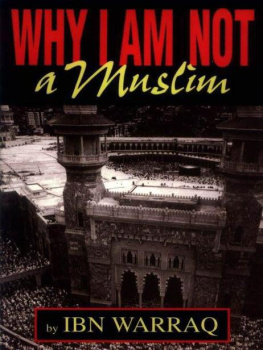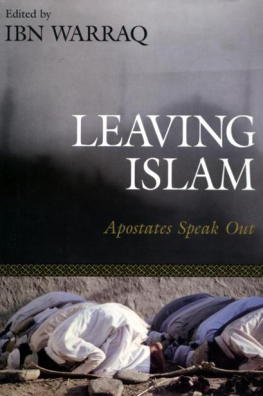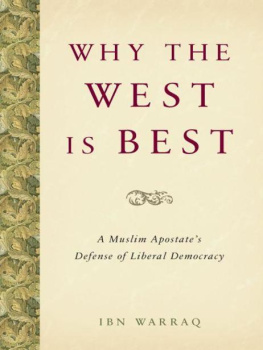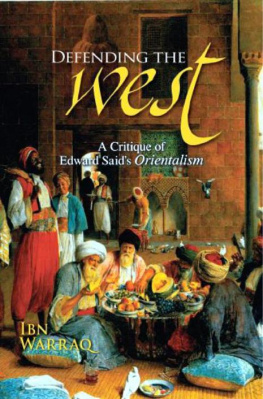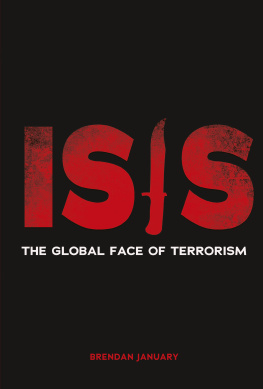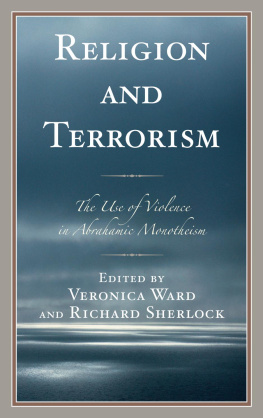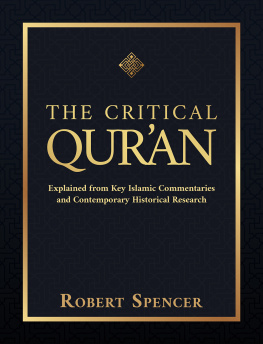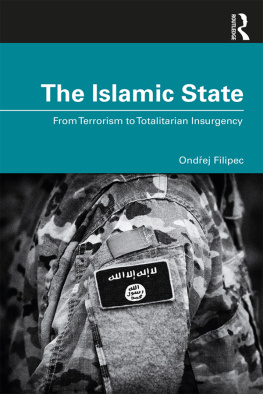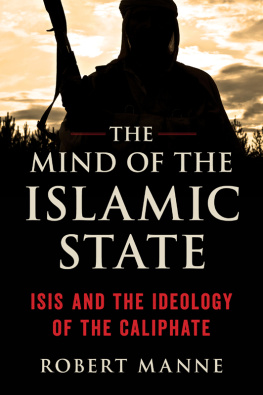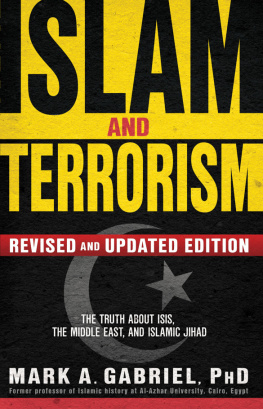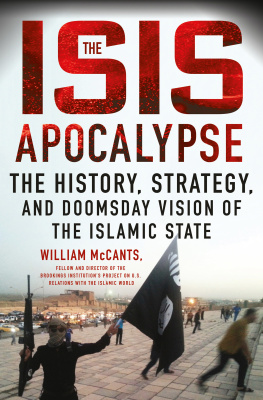The Islam
in
Islamic Terrorism
The Importance of Beliefs, Ideas,
and Ideology
Ibn Warraq
Copyright Ibn Warraq, 2017
All rights reserved. No part of this book may be reproduced in any form or by any means, electronic or mechanical, without permission in writing from the publisher except by reviewers who may quote brief passages in their reviews.
Published by New English Review Press
a subsidiary of World Encounter Institute
PO Box 158397
Nashville, Tennessee 37215
&
27 Old Gloucester Street
London, England, WC1N 3AX
Cover Art and Design by Kendra Adams
ISBN: 978-1-943003-09-9
E-Book Edition
NEW ENGLISH REVIEW PRESS
newenglishreview.org
There was a time when scholars and other writers in communist eastern Europe relied on writers and publishers in the free West to speak the truth about their history, their culture, and their predicament. Today it is those who told the truth, not those who concealed or denied it, who are respected and welcomed in these countries.
Historians in free countries have a moral and professional obligation not to shirk the difficult issues and subjects that some people would place under a sort of taboo; not to submit to voluntary censorship, but to deal with these matters fairly, honestly, without apologetics, without polemic, and, of course, competently. Those who enjoy freedom have a moral obligation to use that freedom for those who do not possess it. We live in a time when great efforts have been made, and continue to be made, to falsify the record of the past and to make history a tool of propaganda; when governments, religious movements, political parties, and sectional groups of every kind are busy rewriting history as they would wish it to have been, as they would like their followers to believe that it was. All this is very dangerous indeed, to ourselves and to others, however we may define otherness-dangerous to our common humanity. Because, make no mistake, those who are unwilling to confront the past will be unable to understand the present and unfit to face the future.
Bernard Lewis, Islam and the West
To
Peter
A Civilizing Influence.
Preface and Acknowledgements
T HE PRESENT WORK was originally 165,000 words. I have cut it down by a third, as I was advised by many friends that a shorter book is always better than a longer one. It seems the general, educated public no longer reads long books, and publishers are reluctant to take on weighty, daunting tomes. I should have liked to have included a much longer section on India. I shall perhaps post the long version on my website in a year or two.
All my Koranic citations are given in the following manner; for example, the citation Q2. al-Baqara , the Cow, 256 refers to Sura 2, called al-Baqara in Arabic, which means the Cow, and the final figure 256 is number of the verse. However, when I have to a give a long list of suras from the Koran, my system becomes rather clumsy. For example, I give the following Koranic references in footnote 167 below: Q2:216; Q2:221; Q3:28; Q3:85; Q4:101; Q4:144; Q8:39; Q9:14, 17, 23, 28, 29, 36, 39, 41, 73, 111, 123; Q25:52. Imagine how lengthy and cumbersome that would be if here I were to insist on keeping the following schema: Q2. al-Baqara , The Cow, 216; and so on.
Originally, I had planned to thank everyone who has shown me any kindness over the last few years. But it all became rather complicated. First, the list became absurdly long, and while awaiting permission to publish their names, I kept remembering ever more people I had forgotten to mention. There is always the possibility I have missed someone. Second, I am not at all sure that I am doing the people I mention any favors, since, alas, Ibn Warraq remains mad, bad, and dangerous to know. I should not like to embroil anyone not directly involved in the books production in any controversy that may ensue on publication of a work critical of Islam. Therefore, I shall only name those who have helped me directly with the book, and whose permission I have received to do so.
It gives me great pleasure to single out my anonymous editor, who, with her professionalism and patience, did a remarkable job on the original, unwieldy manuscript, and made it presentable. I am beholden to Rebecca Bynum, who took on the onerous task of publishing my work though she was already busy with all her political commitments. Rebecca further meticulously edited the work, and got it ready to send to the printer in record time.
Finally, I should like to thank Nancy and Tom Klingenstein for their friendship, kindness, and support which made all my research possible.
It is no empty formality to insist that I alone am responsible for the opinions voiced in the present work.
Introduction
Consider the following claims:
1.Marc Sageman, a government counterterrorism consultant, asserts that terrorism is not the result of the beliefs and perceptions held by the terrorists.
2.The idea of the sacred Koran has existed for 1400 years, give or take, [but] we have seen Islamic terrorism only over the past 40 or so. Clearly, the Koran is not the issue.
I BELIEVE THAT both of these views are wrong.
To understand the behavior of Islamic terrorists, to make sense of their motives, we must take their beliefs seriously. The acts of ISIS or the Taliban or any other jihdist group are not random acts of violence by a mob of psychopathic, sexually frustrated, impoverished vandals, but carefully and strategically planned operations that are part of a long campaign by educated, affluent Muslims who wish to bring about the establishment of an Islamic state based on the Shariathe Islamic Holy Law, derived from the Koran, that is the very word of God, and from the Sunna of the Prophet and the Traditions ( a hdth , pl. of hadth ), which are the sayings and doings of Muhammad and his companions.
Nor has Islamic terrorism emerged, ex nihilo , in the past 40 or so years. From its foundation in the seventh century, violent movements have arisen seeking to revive true Islam, which its members felt had been neglected in Muslim societies, who were not living up to the ideals of the earliest Muslims. Groups such as the seventh-century Azraqites sought to revive forgotten beliefs and rituals and to cleanse the body of Islam of the corrupt practices that had tarnished the pristine Muslim religion. Today, Deobandi extremists, for example, can only be understood against developments within Islam during the eighteenth and nineteenth centuries, in particular the philosophy of Shah Wali Allah, who died in 1762.
What of the religious violence in ninth- and early tenth-century Baghdad associated with such ideologues as Sahl ibn Salma, and Barbahr, and their rejection of innovations ( bida ); followed by more religious violence in Baghdad between 991 CE and 1092 CE? The violent Qdzdeli Movement in seventeenth-century Istanbul may well have influenced the movement launched by Ibn Abd al-Wahhb in Arabia in the eighteenth century, which in turn has influenced almost every modern terrorist movement. Wahhbi extremism spread as far as India and we are still feeling its effects, far beyond Arabia, to this day.
As Barbara Metcalf, professor emerita of history at the University of California, Davis, has noted, when faced with the decline of their culture, Muslims drew on their own traditions for interpretations and patterns of action. Extremists like the Deobandi in India are drawing upon their own tradition and their own history of Islamic activism that reaches back to the foundation of Islam. Similarly, all the other modern Islamist ideologues from Hasan al-Banna to Ayatollah Ruhollah Khomeini examined in this book, draw their inspiration from Islamic traditions, the canonical texts, Islamic history, and seminal Islamic thinkers such as Ibn Taymiyya (also studied in the present work) to justify their political actions and activism, which often end in violence.
Next page


